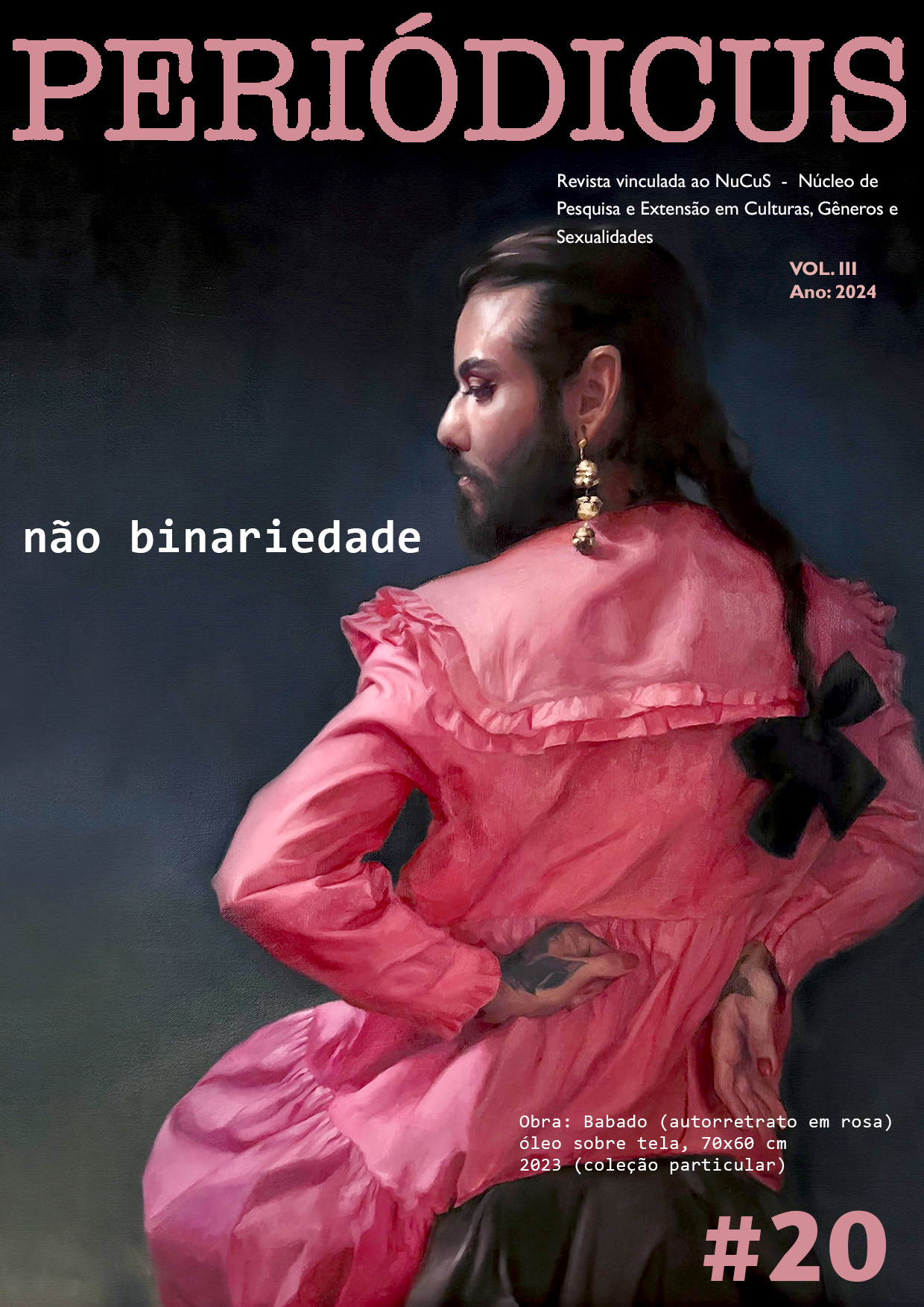An analysis on the feelings of guilt, fear and shame in A palavra que resta, by Stênio Gardel
DOI:
https://doi.org/10.9771/peri.v3i20.60145Abstract
This article offers a critical analysis of the character Raimundo, protagonist of the novel A palavra que resta (2021), by the Brazilian writer Stênio Gardel, focusing on the feelings of guilt, fear and shame concerning sexuality. By using a theoretical framework and a transdisciplinary analytical approach which relies on literary studies, psychoanalysis and social sciences, this work examines how these feelings, enhanced by Christian values, operate as mechanisms of social control, affecting the protagonist's journey. We highlight how the family plays a fundamental role in transmitting Christian guilt to Raimundo. However, in addition to the main themes discussed in this study, we point out the protagonist’s liberation process: from middle age onwards, Raimundo elaborates his traumas and accepts his sexuality, overcoming the feelings that hindered him throughout his life.
Downloads
Downloads
Published
How to Cite
Issue
Section
License
Copyright (c) 2024 Raul Leme Medeiros, João Pedro Wizniewsky Amaral

This work is licensed under a Creative Commons Attribution-NonCommercial 4.0 International License.
Autores que publicam nesta revista concordam com os seguintes termos:
Autores mantêm os direitos autorais e concedem à revista o direito de primeira publicação, com o trabalho simultaneamente licenciado sob Licença Creative Commons Attribution Noncommercial que permite o compartilhamento do trabalho com reconhecimento da autoria e publicação inicial nesta revista, sendo vedado o uso com fins comerciais.
Autores têm autorização para assumir contratos adicionais separadamente, para distribuição não-exclusiva da versão do trabalho publicada nesta revista (ex.: publicar em repositório institucional ou como capítulo de livro), com reconhecimento de autoria e publicação inicial nesta revista.
Autores têm permissão e são estimulados a publicar e distribuir seu trabalho online (ex.: em repositórios institucionais ou na sua página pessoal) a qualquer ponto antes ou durante o processo editorial, já que isso pode gerar alterações produtivas, bem como aumentar o impacto e a citação do trabalho publicado (Veja O Efeito do Acesso Livre).







